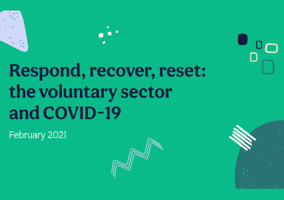A third of charities have worked more closely with local authorities during the coronavirus crisis, according to the latest research into the impact of Covid-19 on the sector.
Data from Respond, Recover, Reset surveys, conducted by NCVO, Nottingham Trent University and Sheffield Hallam University, shows that charities and councils “have found new ways to collaborate” during the pandemic, according to one of its authors.
The data, collected from more than 500 charities and social enterprises, was published yesterday.
It found that around seven in 10 charities had worked with their local authority in some form during the crisis, including by delivering service contracts and acting as advisers to local officials.
Furthermore, the level of engagement with councils had increased for 36% of the charities surveyed, while just one in 10 said that engagement had fallen.
Finances
A quarter of charities said they had received higher levels of local authority funding since March 2020, when the first national lockdown began.
However, a similar proportion – 22% – said they expect funding from local authorities to fall compared with the last financial year. Only one in 10 expect council funding to rise.
Housing charities were the most likely to have seen local-authority funding increase (60%), followed by emergency and relief charities, and community and economic development charities (both 30%).
The research also recorded a marginal fall in the number of organisations saying they fear going out of business in the next year, from 11% in March to 8% this month.
'Intense'
The report said that collaboration with local authorities was especially difficult at the beginning of the crisis for charities with no existing relationship with councils.
It said: “When the Covid-19 pandemic hit in late March 2020, local communities had to respond very quickly to a very different situation.
“The first lockdown brought with it a flurry of activity, as communities and community groups, often in conjunction with local authorities, sought to respond to the personal and social issues that the lockdown brought.
“Those involved in these responses describe this as intense.
“For some, particularly those that had previously worked closely with the local authority and [where] there already existed strong relationships, this resulted in strong collaboration.
“For others, without these pre-existing relationships, gaining access to these local authorities was challenging.”
Fear of funding cuts
Daniel King, professor of organisational behaviour at Nottingham Trent University and one of the report's authors, said: “The pandemic has revealed that in some areas, local authorities and charities and volunteers have found new ways to collaborate with each other.
“We have seen in some local authority areas [that] barriers were broken down, joint work undertaken and partnerships developed in ways that did not seem possible before Covid-19 hit.
“Whilst this is not true everywhere, and smaller organisations seem to be more likely to be excluded, it does demonstrate it is possible for new partnerships to be developed in ways that can be creative and beneficial to local citizens.
“Yet, as the initial crisis of the pandemic eases, there is a danger that things go back to business-as-usual and the silos go back up.
“With funding cuts on the horizon, the next year is going to be challenging for many charities and voluntary organisations.”
Related news











